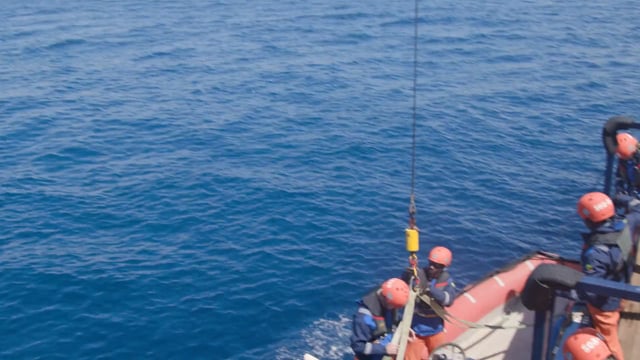[WATCH] Malta and Italy refuse access to 64 people rescued by ‘Alan Kurdi’ ship
12 women, two children and 50 men are at sea aboard the Sea-Eye’s ship ‘Alan Kurdi’ looking for a safe port

64 people rescued at sea by the NGO Sea-Eye’s ship ‘Alan Kurdi’ are looking for a safe port after rescue coordination centres in Rome, Valletta and Bremen refused access to the ship.
The people were rescued after a distress call forwarded by the Watch The Med alarmphone to the Libyan coast guard and the ‘Alan Kurdi’.
The people rescued included 12 women, one of whom is pregnant, and two children. Sea-Eye head of operations Jan Ribbeck said the captain of the ‘Alan Kurdi’ has repeatedly requested a port of safety. No one could be reached in Tripoli via phone.

But the requests for a port of safety have been answered negatively by Malta and Italy.
“The Libyan coast guard did not comply with its responsibility to coordinate this distress case according to the maritime law provisions. Some politicians like to describe the aid organizations as the ones not cooperating with authorities. It is a fact however, that no one could be reached in Tripoli through one of the eight phone numbers and that emails have not been answered either. How is one supposed to cooperate with someone who is not communicating?” Sea-Eye spokesman Gorden Isler said.
On Wednesday, the ‘Alan Kurdi' set course towards the Italian island of Lampedusa. “Unfortunately, our problem can only be solved politically. In principal, one should not have to discuss about the question who rescues when and where human lives,” Isler said.
“We clarified with the Maltese and Italian authorities that we will not enter territorial waters without permission. At the same time however, we also pointed out the approaching storm and the consumption of our supplies.”
Isler said European elections in May 2019 was now informing the way politicians were dealing with the rescue of people at sea. “We fear that our unfortunate situation could be politically instrumentalized by single decision-makers. The European Union has to find a solution to how sea rescue can be continued responsibly and in compliance with international law, regardless of the political mood in individual member states. One of the solutions could be to acknowledge the work of aid organizations and neither defame nor hinder their work.”


.png)

.png)



.jpg)




.jpg)






.png)

